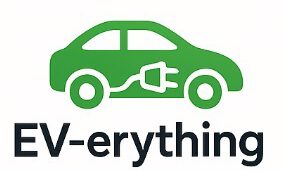Below is a practical, evidence-based “watch list” of EVs and specific model-years/issues that have drawn repeated recalls, major software faults, or serious quality concerns. I’m focusing on widely reported, verifiable problems (with sources) and what that means for you as a buyer.
EVs / model years to be extra cautious about
Battery fire risk (pack defects)
- Chevrolet Bolt EV/EUV (2017–2022) – all model years recalled for LG battery defects that could cause fires; packs were replaced or reworked. If you consider one, verify recall completion by VIN. (NHTSA)
- Hyundai Kona Electric (2019–2020) – recall for battery cell short/thermal risk; many vehicles got full pack replacements. (static.nhtsa.gov)
- Jaguar I-Pace (2019–2024) – multiple recalls for HV-battery overheating/fire risk; some owners advised to park outside and charge to 80% pending fixes; later buybacks reported. (static.nhtsa.gov)
- Porsche Taycan (2020–2024) – recall for potential battery short-circuit risk; diagnostic software and limited charging advised while hardware fix was prepared. (The Verge)
Loss of drive power / critical propulsion faults
- Hyundai Ioniq 5/6 & Genesis GV60/GV70/G80 (2022–2025) – large recall over ICCU failures that can deplete the 12 V system and progressively cut power; parts/software remedy issued. (Reuters)
- Ford Mustang Mach-E (esp. 2021–2022; some 2022 ER packs) – HV battery contactor can overheat, causing no-start or loss of power; recalls/expansions continued through 2025. (static.nhtsa.gov)
- Lucid Air (2022–2023) – recalls for contactors/HVIL logic causing sudden loss of drive; several additional software recalls followed. (static.nhtsa.gov)
- Nissan Ariya (2023) – limited recall for steering wheel bolt improperly installed during port work; separate service actions on steering-wheel sensor mats; check VIN. (static.nhtsa.gov)
Software/infotainment immaturity (stop-sales, frequent glitches)
- Chevy Blazer EV (2024 launch) – high-profile stop-sale over software; sales later resumed after updates and price cuts, but do extra diligence. (Edmunds)
- VW ID.3/ID.4 (early 2020–2021 builds) – widely reported early-software instability and heat-pump under-performance; later updates improved things, but test thoroughly and check recall/service history (ID.4 also had 2024–2025 software/12 V related actions and a door/closing recall in 2024). (DIE WELT)
Other notable safety recalls
- Toyota bZ4X / Subaru Solterra (2023) – initial “do not drive” recall for wheel-hub bolts that could loosen and allow a wheel to detach; remedy later issued. Recent recall also for defroster software (MY 2023–2025). (static.nhtsa.gov)
- Rivian R1T/R1S (2022) – recall for loose steering-knuckle fasteners (torque) affecting control; later software-assist recall in 2025. (static.nhtsa.gov)
Brand stability / support risk
- Fisker Ocean (2023–2024) – multiple recalls and NHTSA probes; company filed Chapter 11 (June 2024). Parts/service and recall support can be unpredictable—avoid unless you fully understand local after-sales coverage. (Reuters)
Systemic note on Tesla
- Tesla (various models 2012–2024) – frequent OTA recalls (Autosteer driver-monitoring changes; seat-belt reminder logic, etc.). OTA fixes are convenient, but if you buy used, confirm the car is on the latest firmware and that safety recalls were actually applied. (static.nhtsa.gov)
How to shop smart (so you don’t have to “avoid” entire nameplates)
- Check VIN for open recalls (manufacturer site or NHTSA/EU-Safety Gate). In Sweden, you can also look up a car’s status via Transportstyrelsen once you know the reg number. (vw.com)
- Target “safe” model years. Many issues were fixed mid-cycle. Example: a 2022 Ioniq 5 may still need ICCU work; a late-2024 with proof of the remedy is safer. (Reuters)
- Ask for software/firmware history (printout) and confirm critical modules (e.g., ICCU, contactors, BECM) have been repaired or updated where applicable. (static.nhtsa.gov)
- Battery health report (dealer diagnostic or trusted third-party) and a long test drive with DC fast-charge check—verify no faults appear and charging works as expected. (This is especially key on models that had stop-sales for software.) (AP News)
- Lean on reliability data. Recent surveys show EV reliability improving but still lagging ICE on average; mass-market EVs tend to fare better than premium newcomers. (Consumer Reports)
Short “caution list” (by reason) !!!!!!
- Battery fire risk: Chevy Bolt ’17–’22; Kona Electric ’19–’20; Jaguar I-Pace ’19–’24; early Taycan. (NHTSA)
- May lose drive power: Ioniq 5/6 & Genesis EVs (ICCU); Mach-E (contactor); Lucid Air; some ’23 Ariya. (Reuters)
- Software headaches / stop-sales: Blazer EV (late ’23–early ’24); early VW ID.3/ID.4 (’20–’21). (Edmunds)
- Brand risk: Fisker Ocean (support uncertain post-bankruptcy). (TechCrunch)
—————————————————————————————————————————–
Do you want EV news in your mailbox every week – SUBSCRIBE
Do you miss anything regarding EV’s on this site – send an email to info@ev-erything.com
